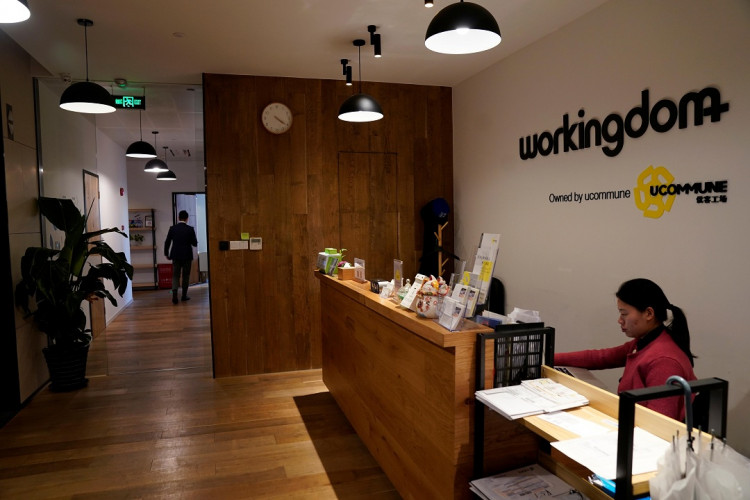LeTV Affiliate to Enter Rural China Market
Despite LeTV's delisting from the Shenzhen Stock Exchange in July after a credit crisis and share meltdown, its brand retains some value: a LeTV affiliate company purchased LeTV's trademarks at a recent auction but has left behind the media enterprise in favor of developing a platform for the emerging market of rural China retailing.
Tianjin Jiarui Huixin Corporate Management, which owned shares in LeTV Super TV, paid RMB130 million (US$18.5 million) for 1,354 of Leshi's trademarks including LE, LE TV, and LeTV Super TV at auction in June, according to JD.com's auction platform.
A subsidiary of Tianjin Jiarui Huixin, Lerong Zhixin Electronic Technology, will benefit from the use of the LeTV trademark and announced on Thursday a collaboration with Huitongda, a domestic logistics service company that provides online merchandising and marketing to retail outlets in more than 15,000 towns across China.
They plan to build a C2M consumption platform in rural China, aiming at reaching RMB3 billion in retail revenue in the next five years, China Business Network reported.
A spokesman for the Lerong Zhixin said that the company will customize various commodities in home electric appliances, video projectors, kitchen appliances and other products suited to Huitongda's rural users claiming to offer big-data analysis combined with Huitongda's understanding of its customers' demands.
In April 2018, Chinese e-commerce giant Alibaba Group Holding invested RMB4.5 billion into Huitongda to cooperate in supply chain, warehousing, logistics, and technologies to provide more brands to rural consumers.
Ucommune Accepts Acquisition Deal
Ucommune, one of China's largest domestic shared workspace providers, announced on Thursday evening that it had abandoned its two-year pursuit of a Nasdaq IPO to gain much needed capital and instead will seek an acquisition deal, house.china.com.cn reported.
Last December, Ucommune failed to get its IPO off the ground with Citigroup and Credit Suisse due to the banks' non-positive projections for the co-working firm's valuation.
In July, Ucommune International, the wholly owned subsidiary of the Nasdaq-listed Orisun Acquisition Corp., acquired Ucommune in a deal would allow the subsidiary to be listed on Nasdaq and resulted in a combined company that will have a value of approximately $769 million.
Established in 2015, Ucommune's valuation peaked at US$3 billion in 2018 after raising US$200 million in a series D funding round. As of the first quarter of 2020, a total of 531 new enterprises signed up for work space in the co-working network.
Illegal Coal Mining Exposed in Qinghai
Qinghai Xingqing Industry and Trade Engineering Group has been busted for operating illegal coal mining operations in Nanlu Hinterland, after disgusing the operations as "ecological protection work," Economic Information Daily (EID) reported on Tuesday.
In response to the media exposure, the local Qinghai government claimed it had formed a multidisciplinary task force, consisting of cross-departmental officials, to investigate the case.
Located in Tianjun county of Qinghai province, the Mulli mining area in Nanlu Hinterland is closely connected with the Qilian Mountain nature preserve, which has had to face various environmental threats.
From 2005 through 2020, Xingqing had developed mining operations in Juhugengyi, among the richest mining fields in the area, without gaining proper coal mining certification. Up to 25 million tons of coals were mined, with the company reaping over RMB15 billion in profits from the operations, said EID.
A source in Xingqing revealed that the company was running round-the-clock mining operations, but had disguised its work with "green materials" to pretend it was pursuing eco-friendly operations when government inspectors came on site.
EV Automakers in Highly Charged Competition
The German luxury automobile manufacturer BMW this week reported a loss in the second quarter totaling €230 million ($271.5 million), with revenues in the quarter dropping to €19.97 billion from €25.72 billion the year prior, marking the first loss in the past decade, but BMW said it hopes to make up for the losses through increased EV sales in China.
BMW said it invested up to €2.734 billion in EV R&D and promotion in the first half, adding that it would invest €30 billion in research and development for new technologies including electric cars through 2025,.
The electric vehicle iX3, product of a joint venture between BMW and Chinese car maker Huachen Auto Group, is expected to be exported to overseas markets this year as it goes head-to-head against Tesla, General Motors, Toyota and German competitor Volkswagen's EV production in China.
Volkswagen announced in May that it would invest €1 billion for a 50% stake in the state-owned parent of Anhui Jianghuai Automobile Group (JAC Motors) focusing on the EV unit. Volkswagen also will pay €1.1 billion to acquire 26.5% of battery maker Guoxuan High-tech Co. Ltd.
Meanwhile food delivery and ride-hailing giant Meituan Dianping is backing Li Auto Inc., which filed in July for a U.S. initial public offering that aims to raise at least $500 million, Reuters reported. Li Auto has delivered nearly 10,000 autos during the first half of this year.
Tax Relief Provides COVID-19 Support
Over RMB1.5 trillion ($215.5 billion) in taxes and fees were deducted from individuals' and companies' tax bills during the first half of the year by Chinese tax authorites, with nearly half coming from measures to cope with the economic effects of COVID-19, according to a report released by the Ministry of Finance.
As of May, 1.91 million small-scale enterprises and individuals saw reductions or exemptions of value-added tax totaling RMB10.486 billion.
Meanwhile, the transportation and life service industries, which were affected heavily by the coronavirus, received RMB11.054 billion in tax exemptions and reductions.
Up to RMB1.97 trillion in incremental loans were sent to small businesses in the first half of the year, reflecting a rise of RMB753.9 billion compared with one year earlier, according to the Q2 financial institution loan report by the Central Bank.





